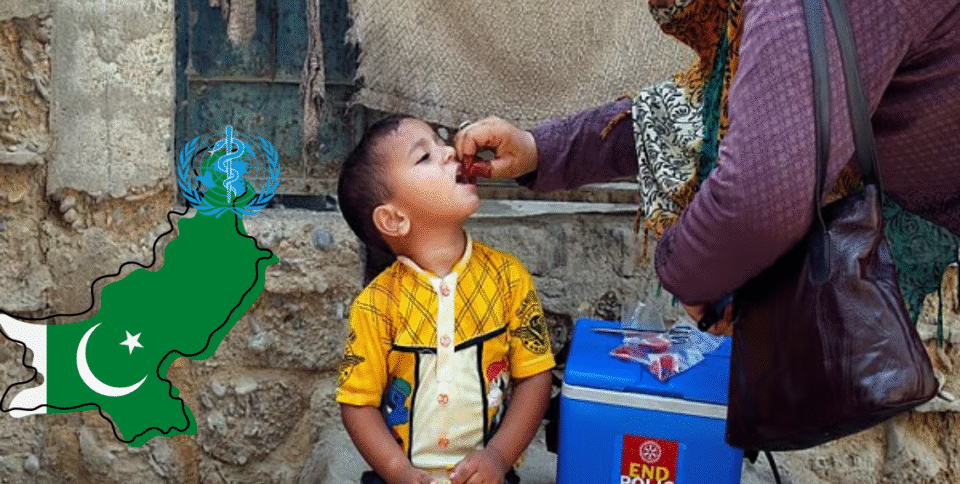KABUL/ISLAMABAD, July 29 – The World Health Organization (WHO) has sounded a serious warning after confirming nine new polio cases in Pakistan and Afghanistan this year, raising concerns about cross-border transmission, weak vaccination coverage, and growing risks to vulnerable populations.
In its latest statement, the WHO said eight cases were reported in Pakistan and one in Afghanistan, underscoring how persistent gaps in immunization continue to threaten eradication efforts in the only two countries where the virus remains endemic.
The surge is particularly concerning due to increased refugee movement from Afghanistan, limited access to conflict-hit regions, and ongoing challenges in reaching unvaccinated children.
Transmission Hotspots and Worrying Trends
WHO identified several key hotspots where polio remains active:
-
In Afghanistan: Southern provinces remain high-risk zones
-
In Pakistan: The cities of Quetta, Karachi, and areas in Khyber Pakhtunkhwa (KP) are particularly vulnerable
“The return of Afghan refugees from Pakistan is increasing the risk of cross-border spread of the virus,” the WHO noted. It urged for stronger regional cooperation and uninterrupted access to all children, especially in marginalized and conflict-ridden communities.
Health experts have echoed the urgency, warning that decades of progress risk being undone without immediate, coordinated intervention.
Pakistan’s Growing Crisis: 17 Polio Cases in 2025 So Far
Adding to the gravity, Pakistan’s National Institutes of Health (NIH) confirmed three new cases this week, raising the 2025 tally to 17. The recent cases include:
-
A 15-month-old girl in Takhtikhel, Lakki Marwat (KP)
-
A six-month-old girl in Mir Ali, North Waziristan (KP)
-
A five-year-old boy in Chajro, Umerkot (Sindh)
That brings the distribution to:
-
10 cases in Khyber Pakhtunkhwa
-
5 in Sindh
-
1 in Punjab
-
1 in Gilgit-Baltistan
Despite repeated national vaccination drives, the virus continues to find openings in rural settlements, conflict zones, and communities plagued by vaccine misinformation. A special campaign from July 21–27 targeting border areas in KP and Balochistan failed to curb the spread. A newer campaign in Chaman and six Balochistan districts began on July 28, but health workers report a lack of proper coordination and local support.
Polio remains incurable and can lead to permanent paralysis, especially in children who miss regular oral vaccinations. The continued detection of cases in 2025 signals chronic systemic failures in Pakistan’s public health system.
Experts blame:
-
Campaign fatigue
-
Poor public trust due to misinformation
-
Weak crisis coordination
-
Fragmented rural outreach
Prime Minister Shehbaz Sharif’s recent promise to intensify eradication efforts appears more reactive than strategic, analysts say. Despite years of international support and global partnerships, Pakistan remains vulnerable to outbreaks — a consequence of neglect, poor planning, and lack of sustained leadership.
“Every unvaccinated child isn’t just at risk — they represent a threat to the entire population,” Dawn News emphasized.
Without serious reform, sustained community engagement, and operational discipline, Pakistan’s polio goals are slipping further out of reach — and the disease, once again, is gaining ground.

